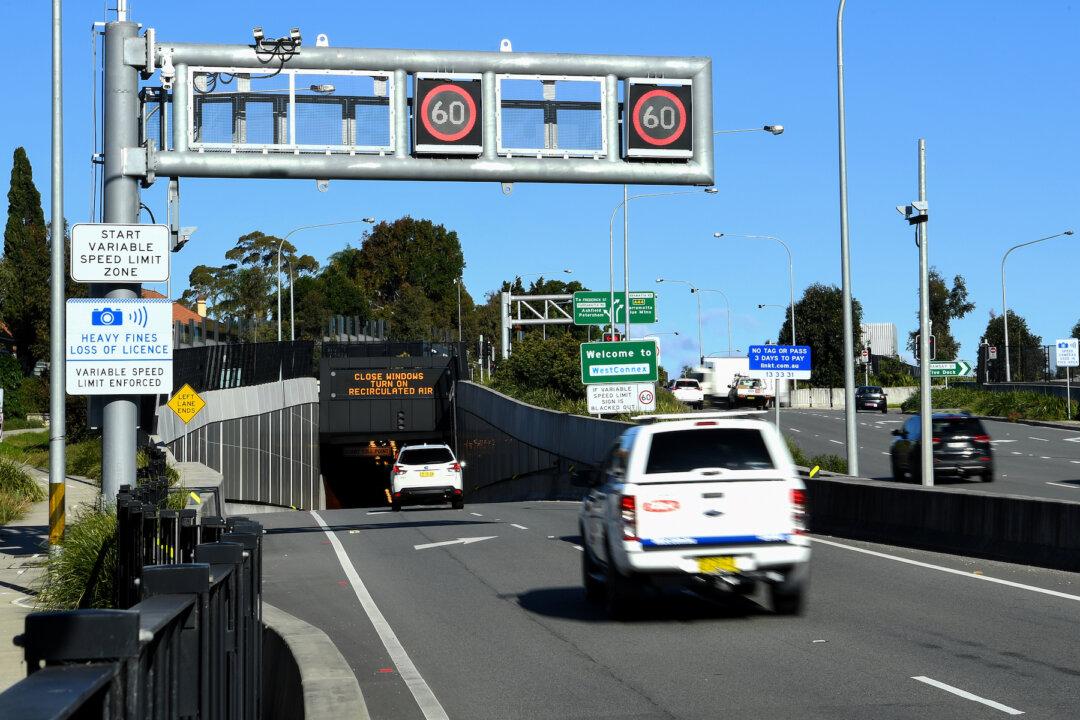Relief for motorists in the “most tolled city in the world” remains some way off with formal talks to overhaul the system yet to begin.
An in-principle agreement issued on Dec. 13 and set to be signed by the end of the year signals the first stage of negotiations with Sydney’s sole private motorway operator Transurban for a network-wide pricing system.





